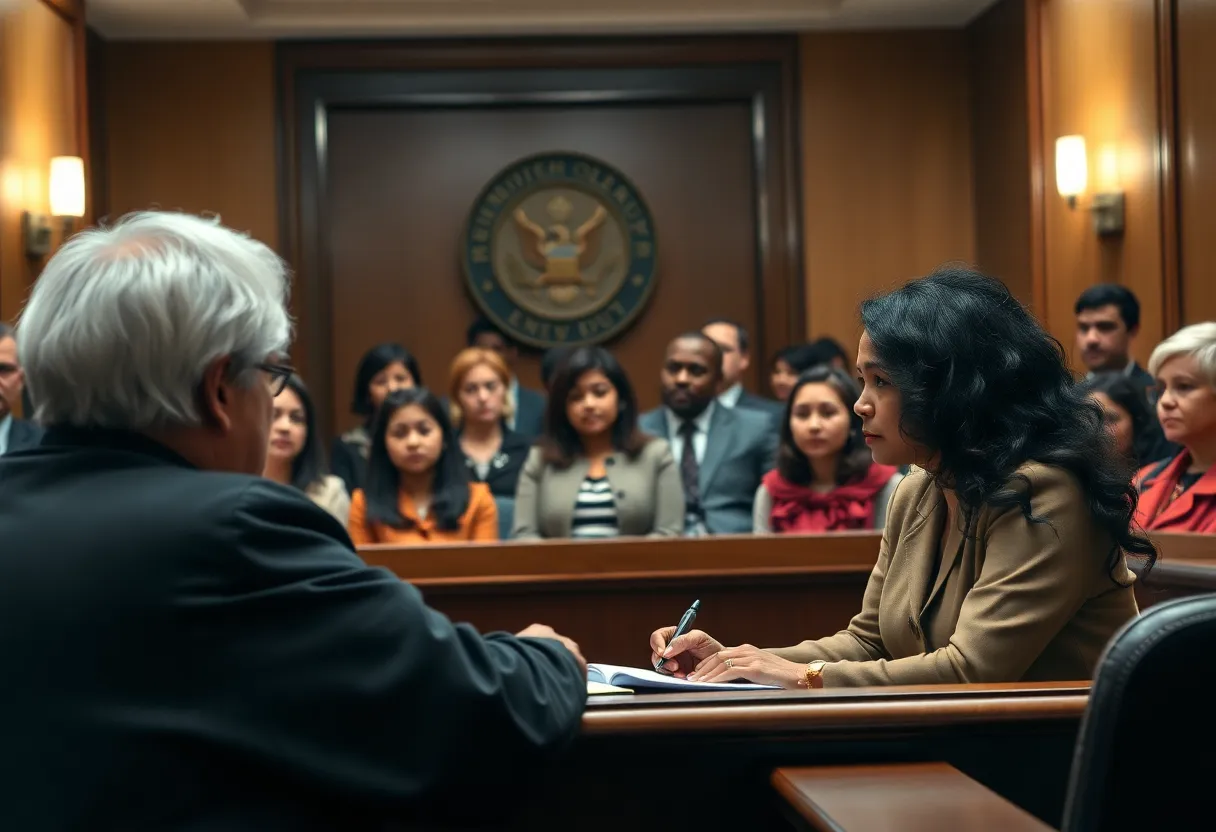News Summary
A federal judge has ordered the Trump administration to pause the deportation of migrants to South Sudan amid concerns about their safety and due process. U.S. District Judge Brian E. Murphy raised serious questions regarding the risks these migrants may face following recent deportation notifications that lacked necessary legal clarity. The case highlights ongoing debates about immigrants’ rights and the legal obligations of the government, particularly regarding individuals from high-risk regions such as South Sudan.
Federal Judge Puts the Brakes on Migrant Deportations to South Sudan
In a compelling turn of events, a federal judge has ordered the Trump administration to keep a close watch on migrants who were reportedly on a deportation flight heading to South Sudan. This ruling comes after a hearing in Boston, led by U.S. District Judge Brian E. Murphy, who voiced significant concerns about the potential risks these individuals might face and the fairness of their deportation processes.
A Complex Situation Unfolds
Immigrant attorneys have argued that sending migrants to South Sudan might contradict an **injunction** issued in April by the very same judge. Judge Murphy raised eyebrows during the hearing, implying that the administration might not be complying with his earlier orders, which aimed to protect migrants from being sent to destinations where they could be in real danger.
The judge went so far as to warn that airline pilots and other officials connected to these deportations could face serious legal consequences if they disregard his court orders. This concern stems from the larger issue of migrants’ rights and due process—topics that have been hotly debated in recent years.
Who Are the Migrants?
Reports indicate that at least two individuals, one from Myanmar and another from Vietnam, were set to be on that fateful flight to South Sudan. The U.S. State Department has raised alarms about travel to this young nation, citing ongoing issues like crime, kidnapping, and armed conflicts, effectively painting a troubling picture of the conditions these deportees may face.
Even though Judge Murphy did not instruct the plane to turn around at this moment, he strongly emphasized that these migrants should remain under U.S. control until a follow-up hearing occurs. This decision is particularly crucial as it highlights the judge’s commitment to ensuring immigrants receive the proper notices and have the opportunity to contest their removals.
Due Process at Stake
In a distressing twist, it has been revealed that immigration authorities provided notifications about deportations just hours before the scheduled flights. One particularly concerning case involved a migrant from Myanmar receiving a removal notice written solely in English, a language he does not adequately understand. This raises significant questions about whether these individuals truly had fair access to legal recourse.
Aside from the two confirmed migrants, attorney emails have suggested that as many as **a dozen individuals** might have already been deported to South Sudan without receiving necessary legal notices. Such a scenario is alarming, not just for the individuals involved but for the broader implications on immigrants’ rights.
Legal Ramifications and Ongoing Challenges
In recent years, the Trump administration has found itself embroiled in numerous legal battles regarding its deportation methods and the need to uphold immigrants’ due process rights. Past cases have highlighted issues surrounding the government’s hurried approach to carry out deportations without offering adequate protections, which has often been deemed unlawful.
Historically, South Sudan has not been an easy place to call home, to say the least. Ever since gaining independence in 2011, the country has been grappling with pervasive violence and humanitarian crises. The U.S. even offers **Temporary Protected Status** to some South Sudanese currently residing in the country, recognizing the unsafe conditions they might return to if forced back home.
Protecting Vulnerable Populations
The potential deportations to South Sudan have caught the attention of immigration lawyers, who are raising alarms about the serious risks of irreversible harm that could befall those affected. Legal representatives for these migrants argue that the government is violating court orders meant to safeguard vulnerable groups—a situation that calls for immediate attention and resolution.
As this situation continues to unfold, the fate of those facing deportation remains uncertain. With a follow-up hearing on the horizon, many are eagerly awaiting to see how this complex and sensitive issue will be resolved.
Deeper Dive: News & Info About This Topic
- BBC News
- Wikipedia: Deportation
- New York Times
- Google Search: Trump immigration deportations
- AP News
- Google Scholar: immigration deportations south sudan
- CBS News
- Encyclopedia Britannica: South Sudan

Author: STAFF HERE PETERSBURG WRITER
The ST PETERSBURG STAFF WRITER represents the experienced team at HEREStPetersburg.com, your go-to source for actionable local news and information in St Petersburg, Pinellas County, and beyond. Specializing in "news you can use," we cover essential topics like product reviews for personal and business needs, local business directories, politics, real estate trends, neighborhood insights, and state news affecting the area—with deep expertise drawn from years of dedicated reporting and strong community input, including local press releases and business updates. We deliver top reporting on high-value events such as Grand Prix of St. Petersburg, Localtopia, and SHINE Mural Festival. Our coverage extends to key organizations like the St. Petersburg Area Chamber of Commerce and St. Pete Downtown Partnership, plus leading businesses in finance, manufacturing, and healthcare that power the local economy such as Raymond James Financial, Jabil, and Bayfront Health St. Petersburg. As part of the broader HERE network, including HEREJacksonville.com, HEREOrlando.com, HERETallahassee.com, and HERETampa.com, we provide comprehensive, credible insights into Florida's dynamic landscape.



